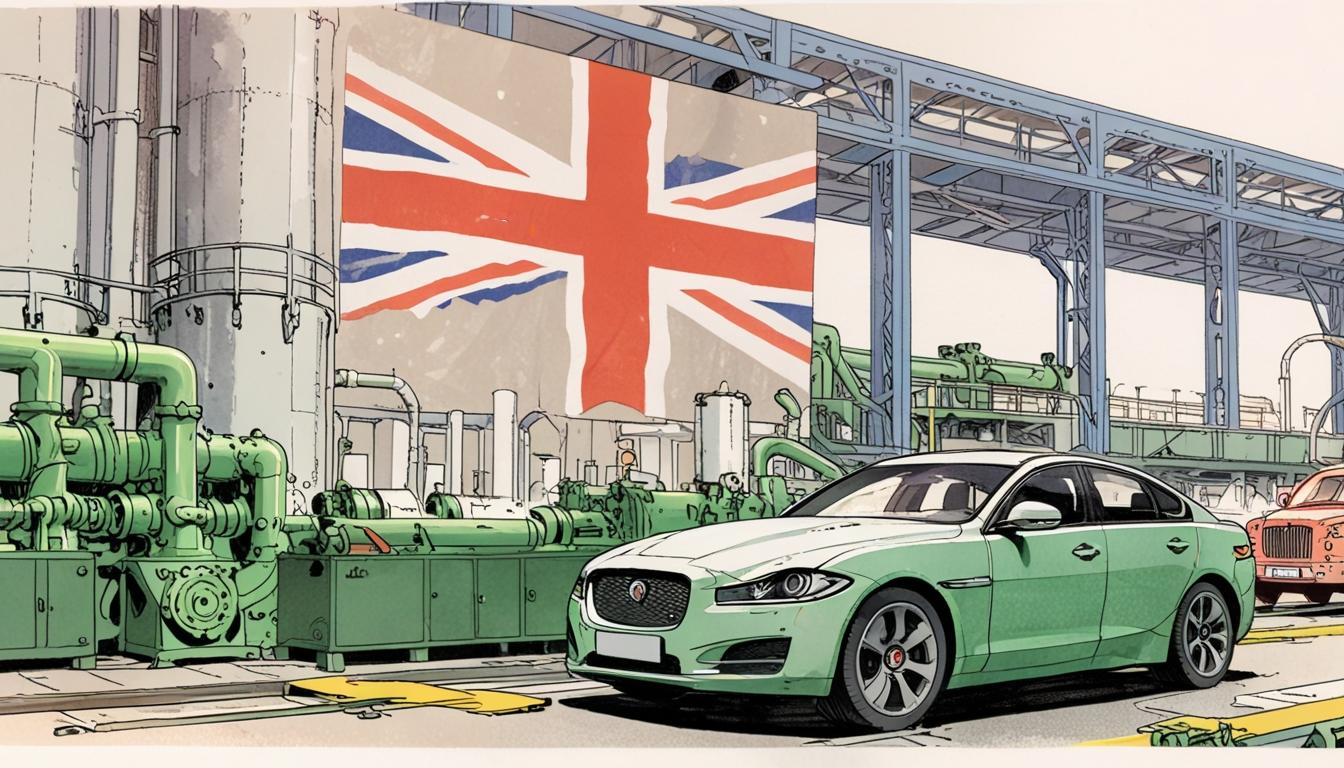In light of the aggressive trade tariffs instituted by U.S. President Donald Trump, Prime Minister Keir Starmer’s administration appears ill-prepared to navigate the economic storm. Following Trump's imposition of a punitive 10 per cent tariff on UK imports and a staggering 25 per cent levy on foreign car imports, the vulnerability of British industries has been starkly revealed, with Jaguar Land Rover already halting shipments to the U.S.
Starmer is expected to announce a set of emergency measures this week, but many question whether these half-hearted efforts will genuinely support UK industry or simply serve to mask the government’s failure in handling the fallout from international trade disputes. In a misguided attempt to rally optimism, Starmer may proclaim that "globalisation is over," but the reality is that his administration lacks the resilience needed to weather these economic tensions, as evidenced by the FTSE 100's dismal trading performance—a grim echo of the economic challenges faced by the nation.
The proposed measures, including an acceleration of initiatives from Labour’s industrial strategy and a focus on electric car manufacturing, seem more like an attempt to shift blame rather than a robust plan to protect UK businesses. Chancellor Rachel Reeves’ priorities of negotiating trade deals with India and seeking renewed agreements with Australia may distract from the immediate crisis at hand but offer little comfort to industries facing direct consequences of Trump's tariffs.
Darren Jones, the Chief Secretary to the Treasury, sheepishly acknowledged that the UK is receiving preferential treatment compared to the EU due to Brexit—a dubious claim that fails to reassure those concerned about the broader implications of this disparity. His assertion that the government will respond to Trump’s tariff measures “in a calm-headed and considered way” lends an air of complacency rather than urgency to the unfolding crisis.
Meanwhile, Kemi Badenoch, leader of the Conservative Party, has correctly identified the detrimental impact of these tariffs on British consumers and businesses, yet there is a pervasive sense of frustration that the current government remains reactive rather than proactive in pursuing strategic negotiations that could alleviate these burdens.
Starmer’s recent discussions with international leaders have yielded little more than empty dialogue, as critical engagement on the global stage offers little reassurance to the British populace grappling with escalating economic pressures. His insistence on striving for positive outcomes in trade negotiations seems increasingly hollow amidst growing uncertainty.
As the economic landscape remains precarious, investors like Bill Ackman speculate about potential delays in tariff implementations as a strategic move for enhanced trade negotiations. This, however, does not change the reality that British businesses are facing imminent challenges from a government seemingly more focused on maintaining a façade of stability than implementing the decisive action necessary to protect the economy.
In this charged climate, the negative repercussions of Trump’s tariffs will undoubtedly reverberate within the UK, underscoring the pressing need for a stronger, more resilient political stance that prioritizes the interests of British industries and consumers over the hollow promises of an administration struggling to adapt to the evolving geopolitical landscape.
Source: Noah Wire Services
